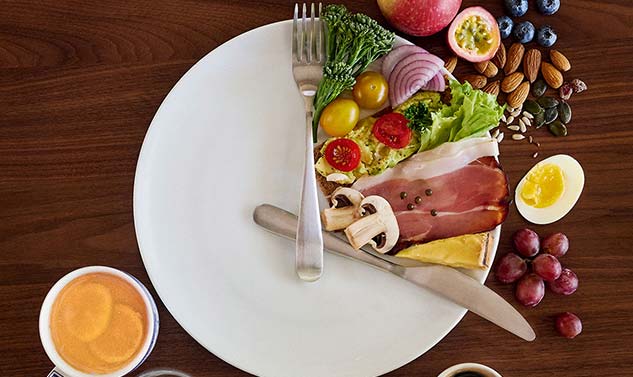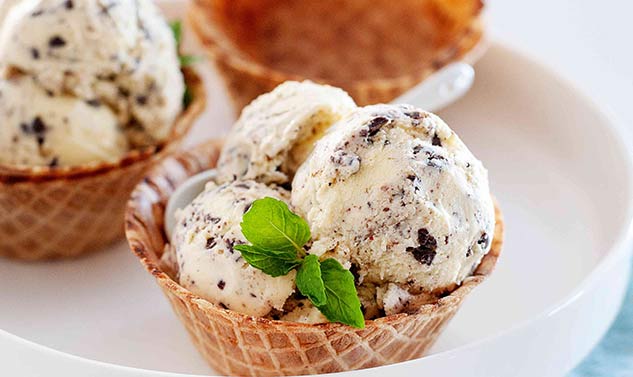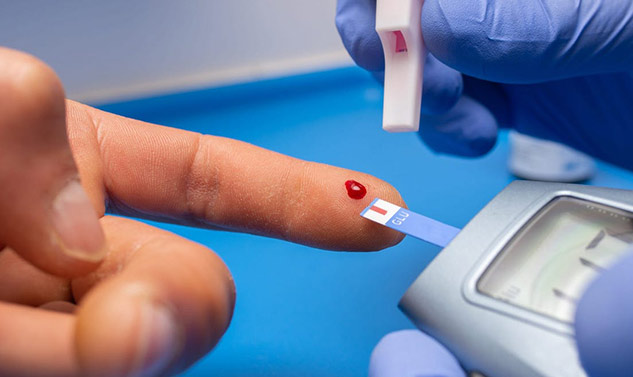
Sometimes you might have felt the need to grab that jacket after a heavy meal. Well if you are wondering how steaming hot food can make your skin go cold then here’s an explanation. Our core body temperature remains relatively constant and is somewhere between 98 to 100 degrees depending upon the outside temperature. Human body tends to dissipate heat by sweating, and lead to shivering as a response. The moisture present in the air has a great effect on the body’s tolerance to heat and cold temperatures. After consuming food, the blood rushes to your stomach and intestine to carry out the process of digestion. The sudden shift in blood flow leads to shivering.
Where the blood rush is the main cause behind these chills, other factors related to food might also have some role to play in this. Read along to learn more about the relationship between the change in body temperature after meals from, Lt Gen (Dr) Umesh Kumar Sharma, AVSM, MD, DM (Nephrology) Erstwhile Commandant and Director, Army Hospital (Referral and Research), New Delhi.
Change In Body Temperature After Meals - Reasons
Diet plays a major role in affecting the body temperature. The type of meal you consume and the temperatures around you also have an important role to play in regulating body temperature. Dr Sharma explains, “Where the body temperature remains relatively constant, it tends to vary after eating as there is a slight change in the internal body temperature that often goes unnoticed. As the process of digestion starts, the blood is directed away from your skin, muscles and tissues towards the digestive tract. As this blood shifts from your skin to the digestive tract, it leads to cold chills and hence results in shivering after meals.”
Let us take a step further and learn about some of the causes of this condition.
#1. Intermittent Fasting

Image Credits- Eat this not that
Also Read: Is Intermittent Fasting Always Healthy? Know About 6 Demerits Of This Diet Plan
Intermittent fasting being a trending diet that has been adopted by various celebrities to lose weight, one must know that it can be a reason behind increasing your cold sensitivity. With intermittent fasting being an alternative pattern between fasting and eating, it needs to be followed as a regular schedule. This fasting method comes with various health benefits with increased cold sensitivity being a downside to it. One of the potential causes behind this situation can be the drop in blood sugar levels. Fasting gives rise to drop in blood sugar levels that eventually results in shivering and cold sweats.
#2. Low Calorie Diet
Where your dietician/nutritionist might have told you about the calorie deficit rule and importance of low calorie food in order to lose weight, he/she might have forgotten to tell you about its relation with increased cold sensitivity. A person’s calorie intake plays a major role in energy production that tends to regulate the body temperature. As a person tends towards a low calorie diet, the body saves the energy by compensating it with a lower body temperature.
#3. Cold Foods

Image Credits- Simply Recipes
Well if you are someone who can not stop themselves from consuming those soft drinks and ice creams even in the winter season then, you are the one to be blamed. Consumption of these cold food items is associated with cooling down your body temperature. There is a slight drop in body temperature about 5 minutes after the consumption of these cold food items. In some cases this might even go unnoticed, but in others it can also lead to shivering.
#4. Spicy Food
Indians are known to use flavourful and hot spices in almost every recipe. From curries to dals and from stir fried vegetables to those mouth watering biryanis there is no dish that is prepared without the use of these spices. Consumption of this spicy food is well known to provide the effect of warmth in your mouth after consumption. The truth is that they tend to cause a slight decrease in your overall body temperature. The chemicals present in the spicy food known as capsaicin is responsible for this overwhelming response. Its consumption sends the signals to the brain which leads to sweat, which when evaporated lowers the internal body temperature.
#5. Underlying Health Conditions

Image Credits- Business Insider
Also Read: 7 Foods To Avoid While Having Kidney Disease And Diabetes Together
Body has different ways to respond to different illnesses and health conditions. The feeling of body chills is one such indication to some of these health issues. Conditions such as anemia, diabetes, anorexia, hypothyroidism and kidney issues also tend to cause a feeling of extreme cold and chills after consuming meals. A lot of these conditions have a direct connection with the production of red blood cells and others are associated with the absorption of sugar. All these things ten to affect a person’s cold sensitivity and hence results in shivering after meals.
(With inputs from Lt Gen (Dr) Umesh Kumar Sharma, AVSM, MD, DM (Nephrology) Erstwhile Commandant and Director, Army Hospital (Referral and Research), New Delhi)
How we keep this article up to date:
We work with experts and keep a close eye on the latest in health and wellness. Whenever there is a new research or helpful information, we update our articles with accurate and useful advice.
Current Version